When we talk about leadership in nursing, the conversation often turns to titles: manager, supervisor, director. But leadership doesn’t always require an office or a formal designation. For Registered Practical Nurses (RPNs), leadership often happens at the bedside, in projects and initiatives, and through the everyday choices they make to support their colleagues and patients. Two RPNs – Lindsay Eagleson and Hafsa Sallad – show how leadership in practice is as much about courage, creativity, and curiosity as it is about any job description.
From PSW to Innovator: Lindsay’s Path
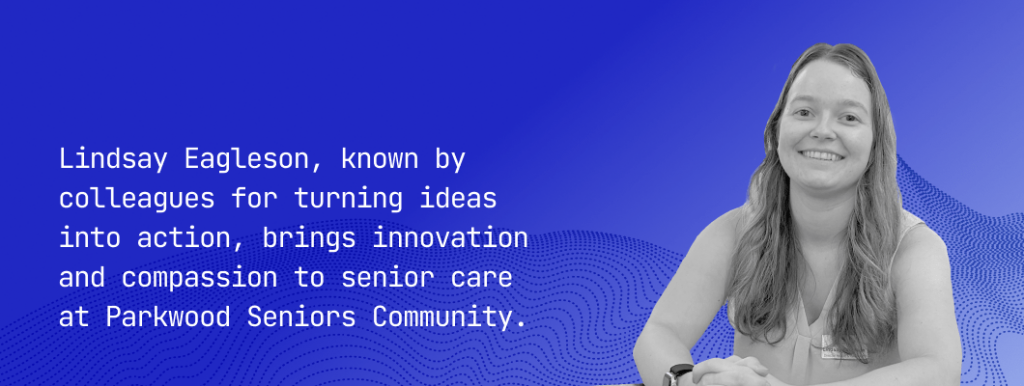
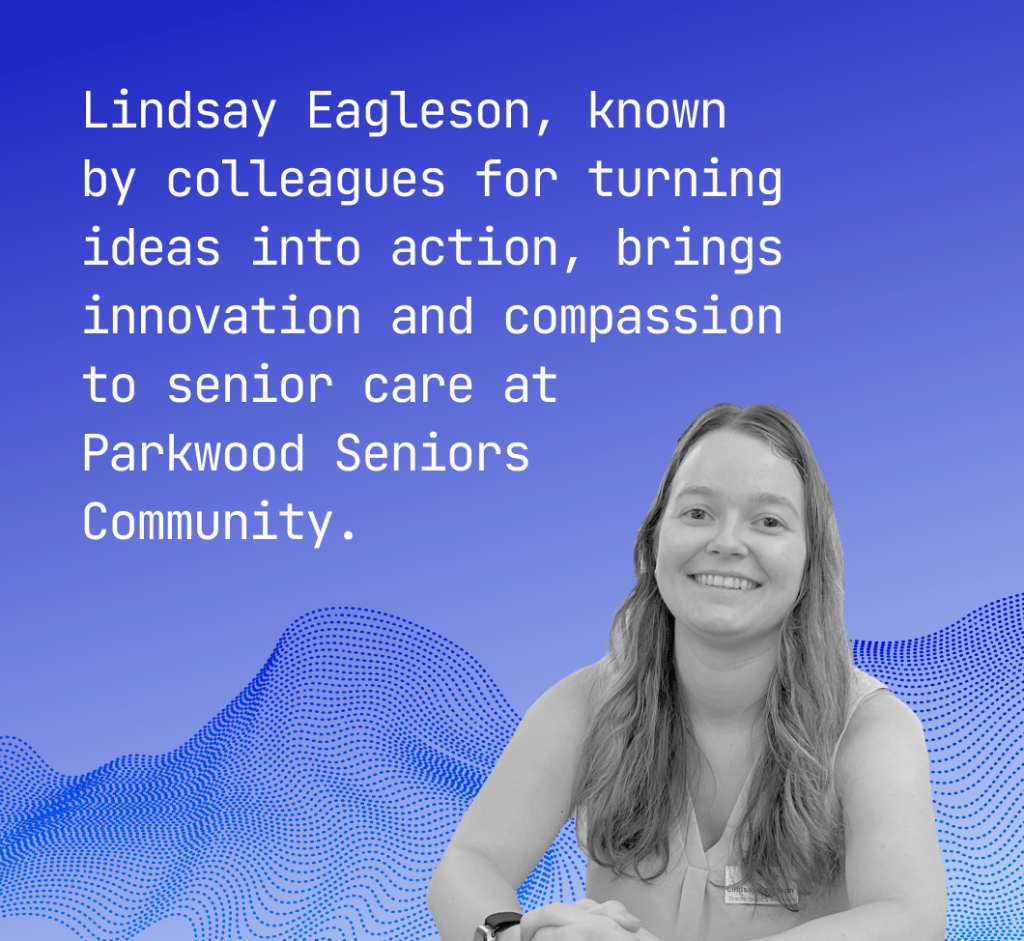
Lindsay Eagleson’s nursing career began in an extraordinary time. After starting as a PSW, she became an RPN in 2019, just before the pandemic reshaped healthcare. Within months of starting her first job in a retirement home, she found herself at point of care, responsible for dozens of residents.
“It was scary and overwhelming,” she recalls. “But then I realized – if they trust me with this, I can do it. That was empowering.”
After only three months on the front lines, Lindsay was promoted into management. Today, she is Director of Health and Wellness at Parkwood Seniors Community in Waterloo, leading a team of RPNs. Still, her perspective on leadership hasn’t changed. For her, it’s about accountability, modelling the right behaviours, and setting an example that others can follow.
One of Lindsay’s proudest achievements came when she was still a frontline RPN. Frustrated by outdated paper care plans, she taught herself how to build content in her organization’s electronic charting system. She created new online assessments that automatically updated resident care plans and lead to improved accuracy, communication, and safety.
Not everyone embraced the technology right away. “Some nurses had only ever used paper, so it felt overwhelming. But once I sat down with them and walked through it, they saw the benefits. It wasn’t resistance so much as a learning gap,” she explains.
Beyond technology, Lindsay leads through culture. As the lead of her care home’s “Kindness Committee” she developed a program called Drop in the Bucket, where staff nominate each other for acts of kindness or teamwork. Each month, both the nominee and nominator are celebrated with a small reward. “It’s about noticing when people make a difference, and acknowledging it,” she says.
Her advice for new RPNs who aspire to lead? Stay open to opportunities and let your passions guide you. “I didn’t know I loved implementing and innovating until I tried it. You never really know the path until you’re on it. And leadership doesn’t always mean management – it’s about finding where you can make the biggest impact.”
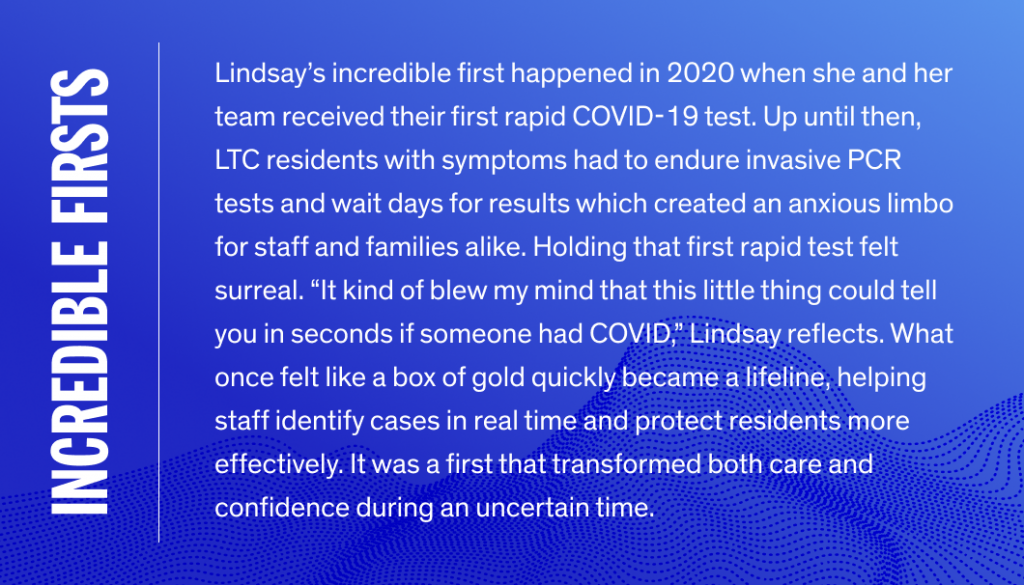
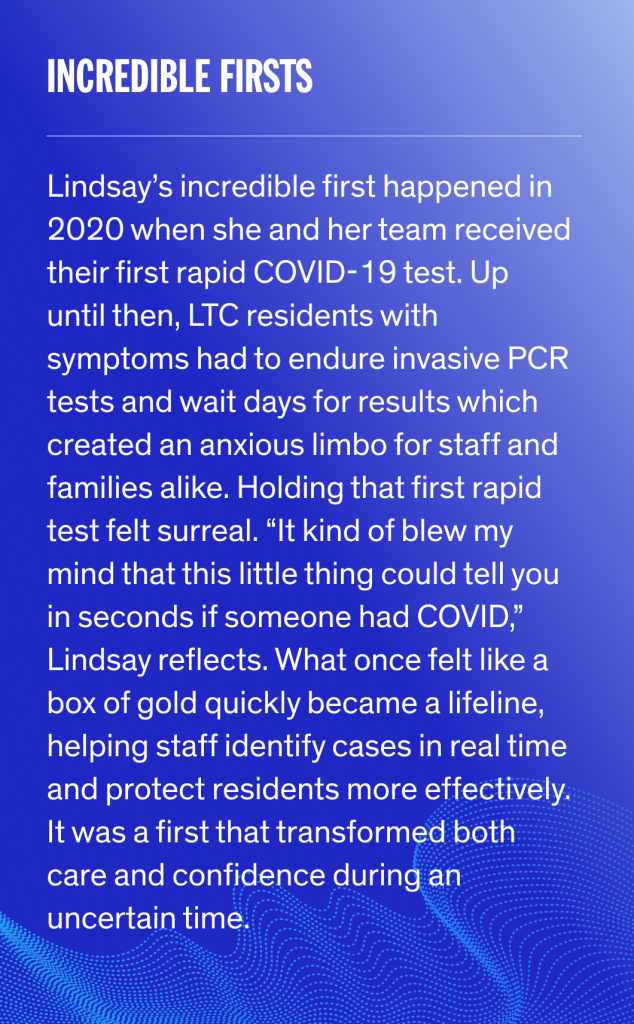
Curiosity as a Compass: Hafsa’s Journey
Like Lindsay, Hafsa Sallad’s career shows that leadership can start with a single question. As a nursing student and later a clinical extern at St. Joseph’s Healthcare Hamilton, Hafsa noticed a hand hygiene coordinator walking the halls. Curious, she asked what the role involved. That simple conversation opened a door: Hafsa began volunteering, gained experience, and eventually stepped into the position herself.
Today, Hafsa is St. Joe’s Hand Hygiene Coordinator, implementing the Just Clean Your Hands program across multiple hospital sites. She audits units, updates policy, identifies gaps in infrastructure, and reminds colleagues, sometimes to their playful groans, about the critical importance of proper handwashing.
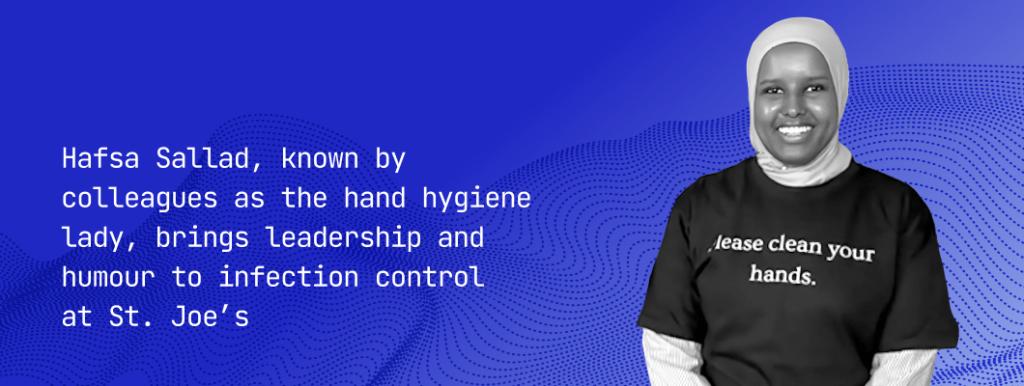
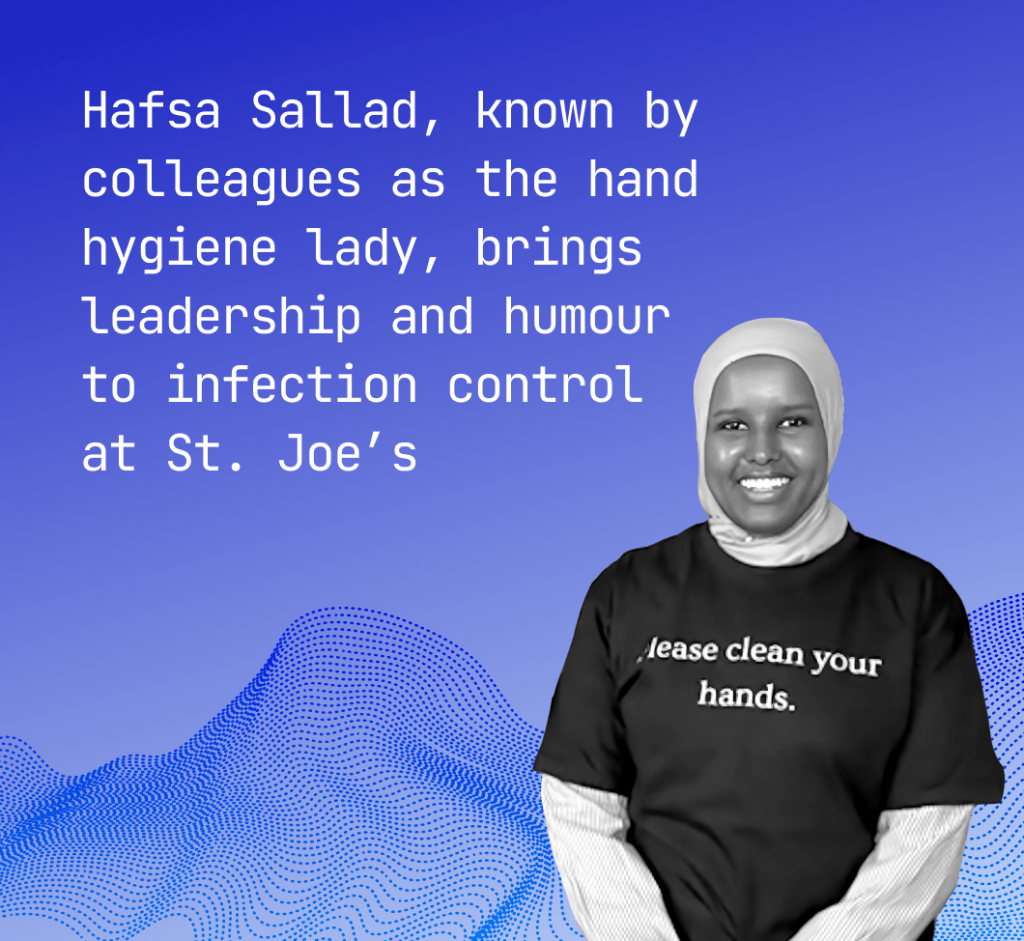
“I get teased sometimes as the ‘hand hygiene lady,’” she laughs. “But I know I’m contributing. Infection control depends on it, and my colleagues look to me for that piece.”
Hafsa’s career has been defined by saying yes to unconventional opportunities. Alongside bedside work, she supported Niagara Health’s transition from paper to electronic charting as a “HIS Go Live Support” nurse. Placed on a labour and delivery unit during the rollout, she drew on her clinical skills to support staff in real time. “Change is hard in any environment, but in a hospital, it’s high stakes. My bedside experience meant I could step in and help in critical moments. That built trust.”
For Hafsa, leadership is about initiative and shared purpose. “Anyone can lead, with or without a title. It’s about doing something for the greater good, even when it means sacrifice.”
She urges new RPNs not to be limited by job postings or titles. “Experience is experience. The small roles add up. Be curious, ask questions, look for opportunities – even if the door is only slightly open, take the step.”
Redefining Leadership
Both Lindsay and Hafsa show how RPN leadership is often about mindset rather than mandate. Whether it’s reimagining care plans, fostering kindness among colleagues, or advancing infection control, their leadership is rooted in service, creativity, and the willingness to ask: What more can I do here?
Leadership without a title may not always be recognized on an org chart, but it’s essential in healthcare. It ensures innovation, strengthens teams, and ultimately improves patient care. As Lindsay and Hafsa demonstrate, RPNs are not just caregivers but change makers, role models, and leaders in every sense of the word.
